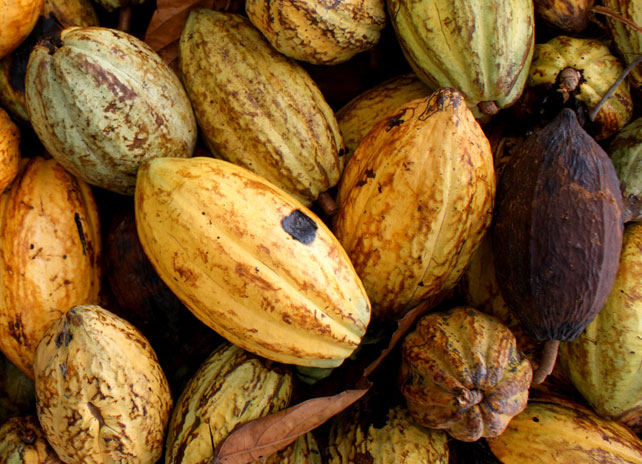Pressure is growing on multinational food giant Nestle to reverse a decision to stop buying Fairtrade cocoa and sugar for flagship chocolate brand KitKat.
A petition on Change.org has been signed by around a quarter of a million people, including actor Thandi Newton and celebrity chef Melissa Hemsley, with momentum expected to build around World Chocolate Day (7 July).
From October, Nestle will stop buying from cocoa and sugar farmers in Cote d’Ivoire, Fiji and Malawi on Fairtrade terms, and will instead use the Rainforest Alliance certification, which it says “aligns closely” with its in-house sustainability programme Nestlé Cocoa Plan. It will source sugar from European sugar beet producers.
The move has sparked opposition from KitKat fans and ethical campaigners, who say that the decision will remove around £2 million of annual Fairtrade Premium payments from farmers, in the middle of a health and economic crisis. Fairtrade gives farmers a fixed premium per tonne as an additional sum that goes directly to a farmer co-operative, as well as guaranteeing a minimum price to farmers that is higher than the open market.
“A non-Fairtrade trade relationship means regression and continued poverty,” said Atse Ossey Francis, chairman of the Ivorian Fair Trade Network. “It is with deep regret and deep concern that we have learned that after proudly producing cocoa for KitKat in the UK for a decade, small cocoa farmers in Côte d’Ivoire will no longer enjoy the benefits of selling their cocoa on Fairtrade terms.”

A Nestle statement said: “We are aware that the move will have an impact on some farmers, and we are working hard to mitigate this. Nestlé UK’s investment in Rainforest Alliance certification and the mitigation activities we have planned exceed the payments that farmers and co-operatives would have received had we stayed with Fairtrade.
“We want to continue working with our Fairtrade farmers and we will pay for them to get to the level required by the UTZ standard, which since 2018 has been part of the Rainforest Alliance certification programme. If farmers are not able to do this in time for the next crop, we will also provide them with financial support for the coming year.”
Nestle’s Cocoa Plan, which it launched in 2009, is part of a growing trend for in-house sustainability schemes, many of which are beginning to scale up.
Owner of Cadbury, Mondelez, plans to buy all of its cocoa under its sustainability scheme Cocoa Life by 2025, while Sainsbury’s launched its own ‘Fairly Traded’ tea line in 2017, replacing Fairtrade.
In comments made to the Guardian in 2017 about Mondelez replacing Fairtrade with Cocoa Life on its flagship Cadbury’s Dairy Milk bars, chief executive of the Fairtrade Foundation, Michael Gidney, said it was “important to understand how large-scale ethical sourcing could help cocoa farmers”, and that the new model could be a template for the future, as long as the requirements of new schemes match the high ethical standards of Fairtrade.
Speaking in response to the KitKat decision, Gidney said: “We stand behind farmers as they applaud the benefits of the decade long partnership with Nestlé and as they ask Nestlé to reconsider this course of action at this time. We urge Nestlé: listen to farmers, do not choose this moment of global crisis to exacerbate the inequalities in the cocoa industry. Be part of the solution and keep KitKat Fairtrade.”
Last year, a survey by Lloyds Register found that shoppers have a “deep suspicion” over ethical labels as they continue to proliferate.
World Chocolate Day is said to mark the day on which chocolate was first brought to the UK and is now used as an annual PR event and celebration of the industry.















Well, I’m even more confused than ever!
Why do all these companies want their own sustainability schemes? In essence the KitKat one doesn’t sound bad if they do all they say they will and stick to the same ethical standards as Fairtrade, but then, why not just remain with Fairtrade? Who will monitor what these companies do and keep them to their promises?
Nestle is a member of the Sustainable Agriculture Platform (SAI). I was one of the scientific advisers to the Platform for 5 years. Nestle was very clear, in all the discussions, that the only reason they were interested in sustainability was to ensure that they would have suppliers ready to sell to them over the long-term. This was because they realised that without sustainable agriculture practices suppliers would run down their soils’ fertility. They also were clear they wanted to maximise their profits, not the profits of their suppliers. So their recent decision is in keeping…
Nestlé is recognised by ethical consumers as one of the most immoral food and beverage companies on the planet. Many of us have been boycotting them since the early eighties when their baby milk formula marketing tactics in developing countries, which is responsible for thousands of infant deaths came to light. They also extract water in USA from areas suffering extreme drought using an out of date permit and paying nothing for it in order to make huge profits. I suspect that trying to shame these people into behaving differently will not work, but certainly worth a try. In the meantime, decent people should not be purchasing anything from this company, or any others that behave like this. All milk (chocolate) involves the cruel treatment of cows, of course, so anyone with real ethical values wouldn’t be buying it. Anyone doubting that ALL dairy cows are mistreated needs to do a little research. It doesn’t take long (a clue: male calves killed shortly after birth, all cows sexually assaulted every year and their calves removed shortly after birth, overproducing milk leading to discomfort and killed at a very early age. That’s without even considering the abuse that most cows face in the majority factory “farms”).